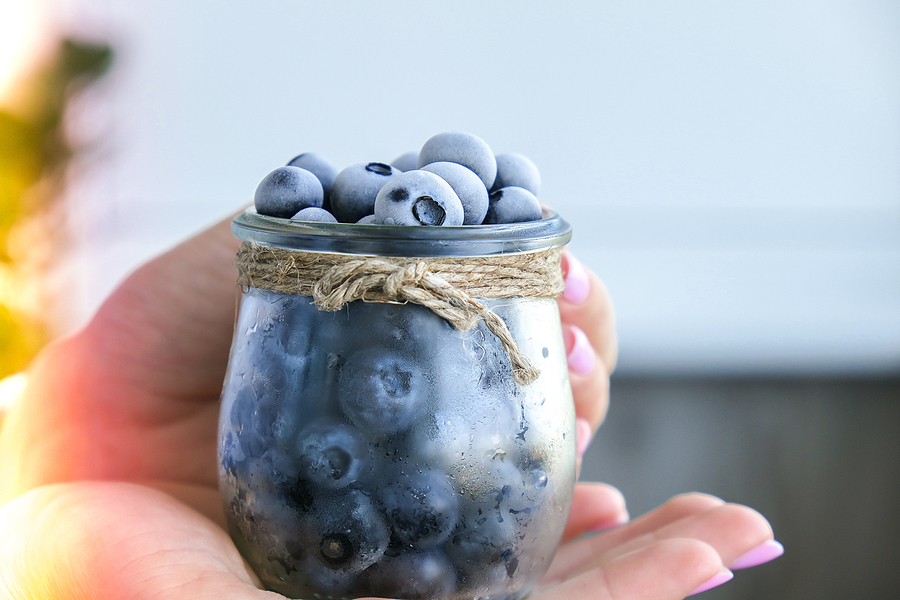Carey came to see me in quite a state after her annual physical with her primary care doctor didn’t turn up any answers to the symptoms she’d been experiencing for months. Her biggest concern was the weight she’d gained in the past couple of years that she just couldn’t get rid of, no matter what she tried. “Is this just what middle age is?” she asked. I told her absolutely not, and then got to work to help her find some answers.
To know what’s really going on for someone, you have to find the root of the problem. So, as I always do, I ran a bunch of tests. I also calculated her “metabolic age” and we discovered that although Carey just turned 45, her body was acting like she was 55!
No one wants to feel older than they are, but Carey said that hearing that number made sense. She felt like her body was falling apart, something she thought only happened to much older people.
In my opinion, it shouldn’t happen at all! There’s no age at which you should just resign yourself to feeling lousy. The goal is to feel as young as possible for as long as possible! I know people in their 70s and 80s whose metabolic age is decades lower. It’s all about knowledge and making healthy choices for yourself.
You don’t age metabolically overnight. Often, a lifetime of poor nutrition, high stress, chronic dieting and other bad habits have been slowly chipping away at your vitality. Symptoms may feel like they appear overnight, but it’s really just that your body has reached the tipping point. It’s trying to let you know it just can’t go on that way any longer!
Once you understand what metabolic age is, how it’s calculated, and what you can do to change it you can start moving that number in the right direction – down! With metabolic age, you can age backwards.
Chronological age vs. metabolic age
Your chronological age is the number of years you’ve been alive. Metabolic age is about how healthy your metabolism is. Having a healthy metabolism is critical to feeling good. Your chronological age doesn’t really matter if you feel like you’re twenty years older than your peers!
Metabolic age is determined by comparing your basal metabolic rate (BMR), which is how many calories your body burns when you aren’t doing anything at all, to the average BMR of others your chronological age. But, of course, this is a bit simplistic considering all the other factors that help determine how healthy someone is. BMR doesn’t take into account how active you are – and that can make a big difference in how many calories you burn each day.
If you want to get a quick idea of where you stand metabolically, you can use this Harris-Benedict Equation calculator.
But talking to a trusted fitness or healthcare professional is really the best way to see where you stand.
What Does My Metabolic Age Say About My Health?
BMR, like BMI (body mass index) is just one measurement of overall health. There’s a lot more to being healthy than having a high metabolism. But when your metabolism slows down, it’s far more likely that you’ll develop problems – especially if you don’t do anything to change it.
Metabolism does naturally slow as you age, but if you let it get too slow, you’ll begin to carry extra weight, have extremely low energy, and develop a host of other health problems. Years of yo-yo dieting can compound the problem, since your body has probably learned to burn muscle and store fat to get through the starvation periods.
While there’s little peer-reviewed research on the importance of metabolic age to date, it just makes sense that you don’t want your body to function like a much older person’s body functions. It should come as no surprise that the better care you take of your body, the slower you’ll develop age related problems.
How can I lower my metabolic age?
The good news here is that no matter what your metabolic age calculation shows right now, it’s not set in stone. You can reduce that number with some lifestyle changes. And I don’t mean obsessively counting calories and dieting – that can actually make things worse! But you do have to pay attention to what you’re eating, how much you move, and the quality of your sleep.
Eat good food
Although reducing the number of calories you consume is a great step towards losing weight, especially if you’ve been overeating for a long time, the quality of your food is even more important than the quantity, I think. The truth is, if you’re eating whole foods and avoiding processed foods, you’ll likely consume far fewer calories without even thinking about it.
Choose complex carbohydrates, not refined carbs like pasta and cereals. Eat lean protein and reduce your portion sizes. Fill your plate with a rainbow of vegetables. Stop filling up on sugary drinks like soda (or even fruit juice) and drink water instead. Hydration is essential for keeping your cells healthy and your body functioning like it should!
You may want to work with a nutritionist or other professional to determine what best overall eating patterns are for you. We are all unique individuals, and we can’t rely solely on what worked for someone else. Still, just eating more vegetables and ditching anything processed will go a long way towards improving your metabolic function.
Move more
You probably know that you burn calories while exercising, but did you know that regular exercise also improves your BMR? That means you’ll burn more calories even when you aren’t exercising too.
If you haven’t been doing any regular exercise, start with adding in some regular stretching, stand up more often, and find small ways to increase how much you move. Take the stairs, park at the far end of the lot, or walk around the block after lunch or dinner.
When you are ready, you can get more intentional about getting exercise regularly. Take a brisk walk, jog, or bike ride several times a week. Join a class that meets regularly and find a friend who will go with you to keep you accountable. Hire a personal trainer to design workouts just for you.
High-intensity interval training (HIIT) is a great way to boost your metabolic rate. In this type of exercise, you work out in short, intense bursts of movement. Before starting this, or any new exercise program, check in with your doctor to be sure you aren’t overdoing it.
Get Quality Sleep
There’s a lot of research that shows how important sleep is to maintaining a healthy weight. You need quality sleep to have a healthy metabolism. If getting enough sleep is a problem for you, try setting a regular bedtime routine (that doesn’t include electronics). Make sure your room is cool and dark. Avoid caffeine late in the day. Turn the lights down and slow your activity down 60 minutes before you want to sleep.
Little changes can yield big results
You don’t have to do a complete overhaul on your life to improve your metabolic age. But you DO need to commit to some shifts in thinking. Resigning yourself to “getting older” won’t help you feel at all better! Carey took some of my suggestions. She swore off fast food, started walking every morning before work, and set her bedtime earlier than it had been in years. And it really paid off! She lost 40 pounds and when we recalculated her metabolic age it had dropped below her chronological age. She was thrilled! With a few simple changes, you can feel much younger too!







